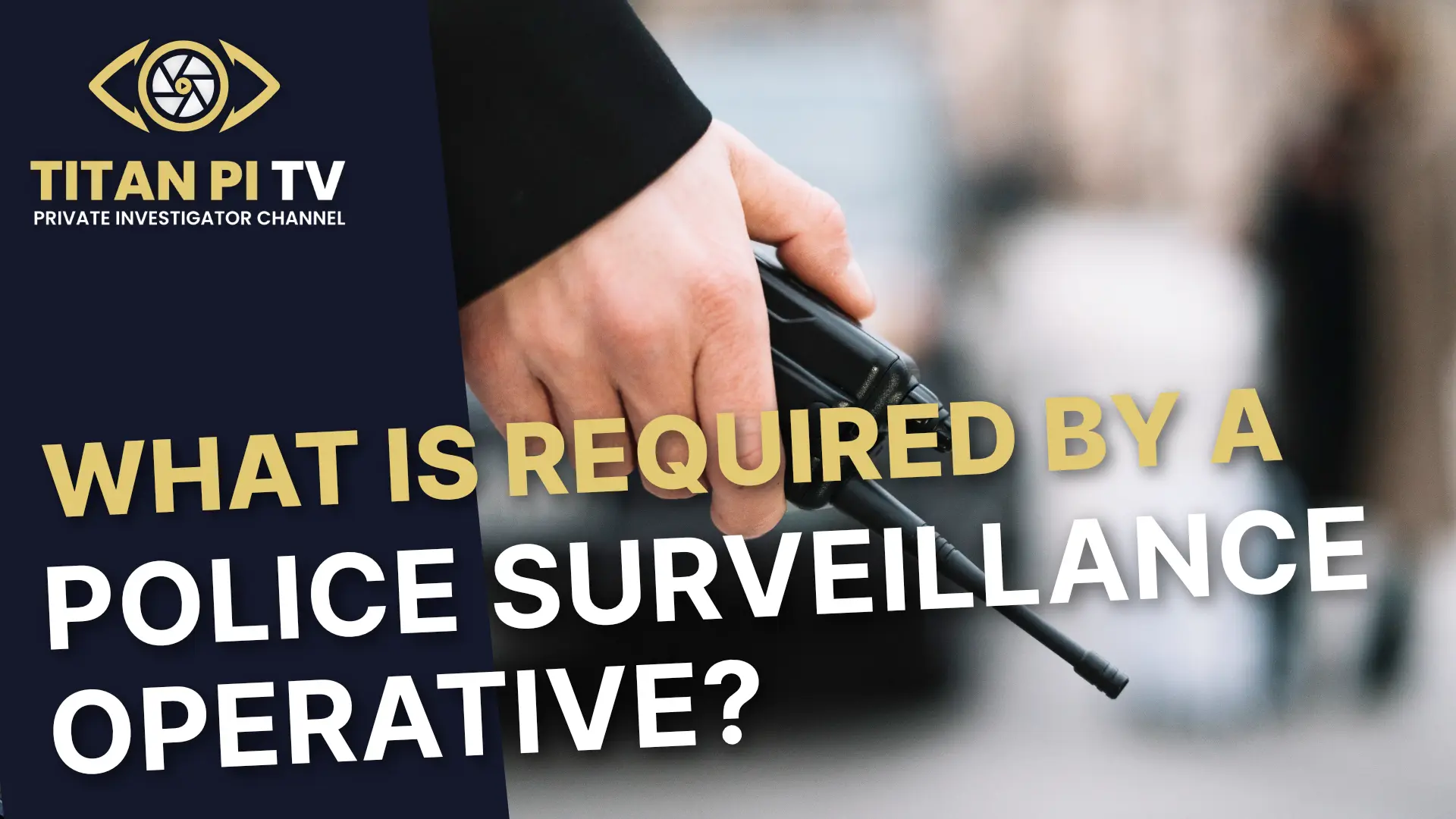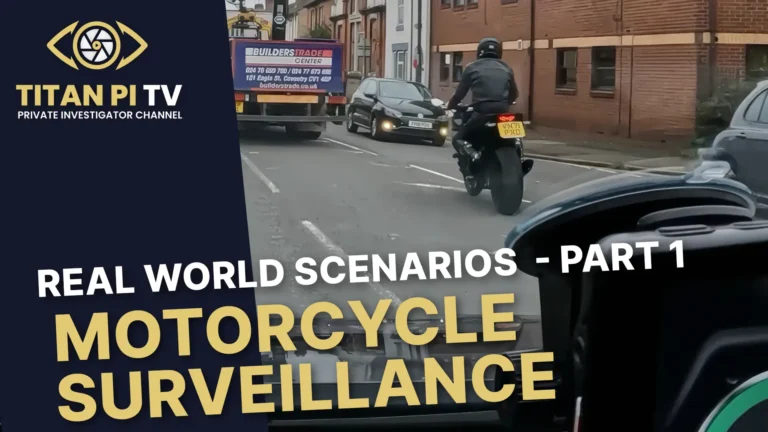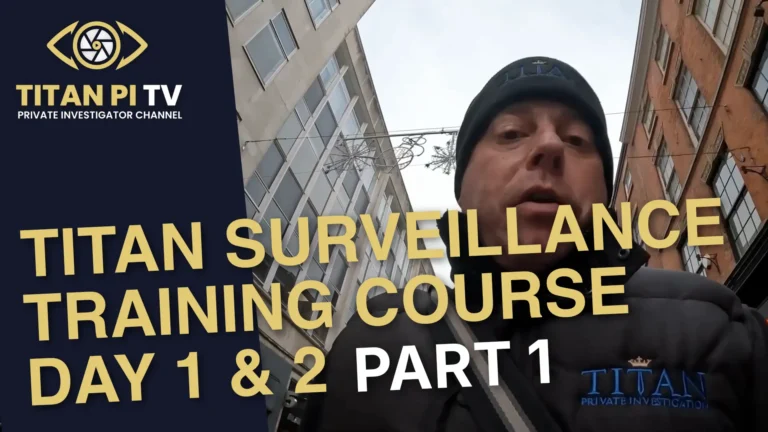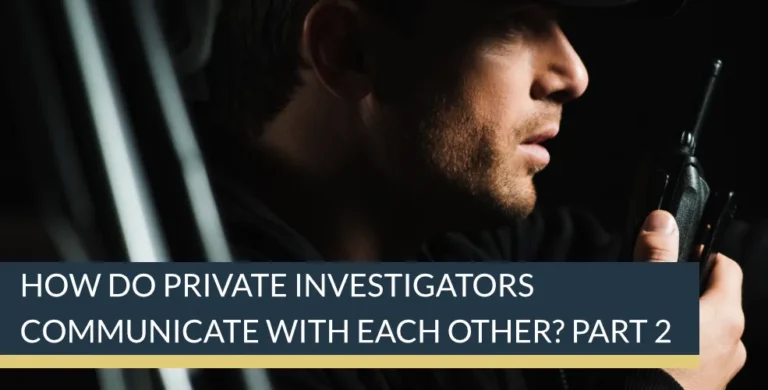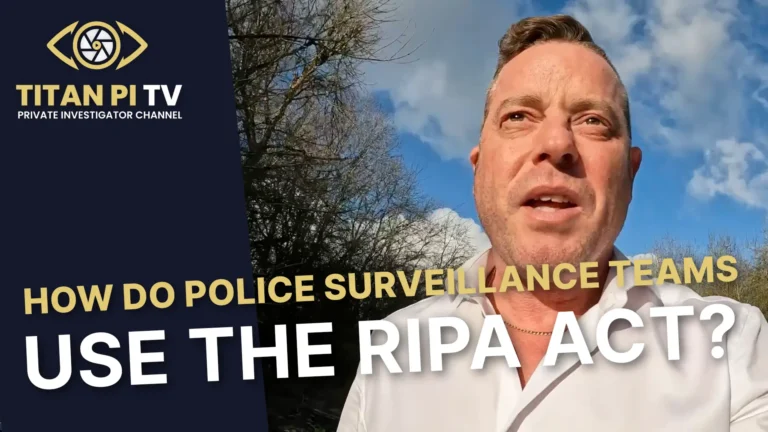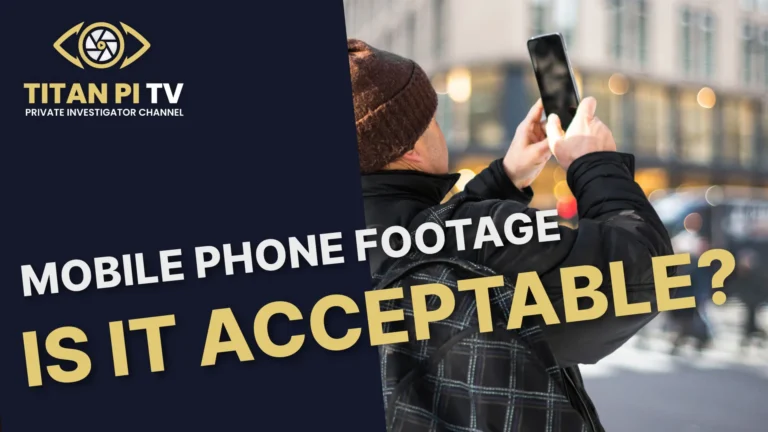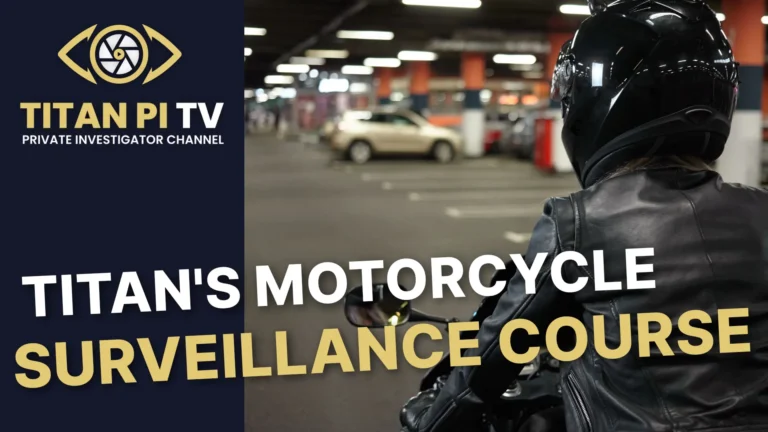What is required by a police surveillance operative?
Welcome to another edition of Titan PI TV, where we delve into the intricate workings of live operational investigation agencies. In this episode, hosted by Simon Henson, Managing Director of Titan Private Investigation Limited, we explore the fascinating world of police surveillance operatives. What does it take to become one? What training do they undergo? And why might you find yourself under surveillance? Let’s break it down.
The Role of a Police Surveillance Operative
Surveillance is defined as the close observation of individuals suspected of involvement in criminal activity. The primary role of a surveillance team is to gather intelligence and evidence to support investigations and, ultimately, secure successful prosecutions.
Police forces typically have dedicated surveillance teams tasked by investigation units. These teams operate under strict guidelines, often unaware of certain sensitive details (referred to as “red Intel”) to maintain operational integrity. Surveillance operatives work across a range of investigations, from major crime and sexual offences to serious organised crime and counter-terrorism.
When Might You Be Subject to Surveillance?
The short answer? Only if you’re involved in criminal activity. Surveillance is not imposed on innocent individuals without justification. For example, if you are frequently in contact with a suspect under investigation, you might temporarily fall under scrutiny. However, rigorous checks and balances, including criminal record and intelligence reviews, ensure that surveillance is only used when absolutely necessary.
The process is governed by the Regulation of Investigatory Powers Act (RIPA) 2000, which mandates strict authorisation procedures. Police cannot simply decide to surveil someone on a whim; it requires approval from higher ranks and must be justified by credible evidence.
Becoming a Police Surveillance Operative
The path to becoming a surveillance operative is rigorous and demanding. Here’s what it entails:
- Probationary Period:
In England and Wales, candidates must first complete a two-year probationary period as a police officer. - Application Process:
- Paper Sift: The initial application stage.
- Interview: A thorough assessment of the candidate’s suitability.
- Fitness Test: Ensuring physical readiness for the role.
- Assessment Centres: Practical tests, such as map-reading exercises, to evaluate situational awareness and tracking skills.
- Specialised Training:
- Firearms Course: A five-week course covering weapons like the Walther P990, H&K rifle, and MP5. Candidates must pass regular qualification shoots to maintain their firearms’ licence.
- Advanced Driving Course: A four-week programme to handle high-powered, unmarked surveillance vehicles.
- Surveillance Course: A five-week residential training programme focusing on covert operations.
- Probation and Specialisation:
After initial training, operatives undergo a two-year probation period, working under the guidance of a tutor. Successful candidates can then specialise in areas such as:- Surveillance motorcycling
- Rural observations (Crops Officer)
- Vehicle tracking (Smart Operative)
The Challenges of Surveillance Work
Surveillance operatives are highly trained professionals. Their ability to remain undetected is a testament to their skill and the intensity of their training. As Simon Henson notes, “Even if you know what you’re looking for, you’re probably not going to see them.”
The role demands exceptional map-reading skills, situational awareness, and the ability to think on your feet. Operatives must also maintain high levels of fitness and proficiency in advanced driving and, in some cases, firearms handling.
What’s Next?
In the next episode of Titan PI TV, we’ll explore how to identify if you’re under surveillance and what signs to look for. However, given the expertise of police surveillance teams, detecting them is no easy feat.
Engage with Titan PI TV
We love hearing from our viewers! Your comments, questions, and requests drive the content we create. Keep the engagement coming, and don’t forget to subscribe to our YouTube channel or download the Titan PI TV podcast to stay updated on future episodes.
Thank you for joining us this week. Until next time, stay curious and stay informed.
Stay sharp, stay observant, and as always, stay tuned to Titan PI TV.
Titan PI TV – Uncovering the Truth, One Episode at a Time.

